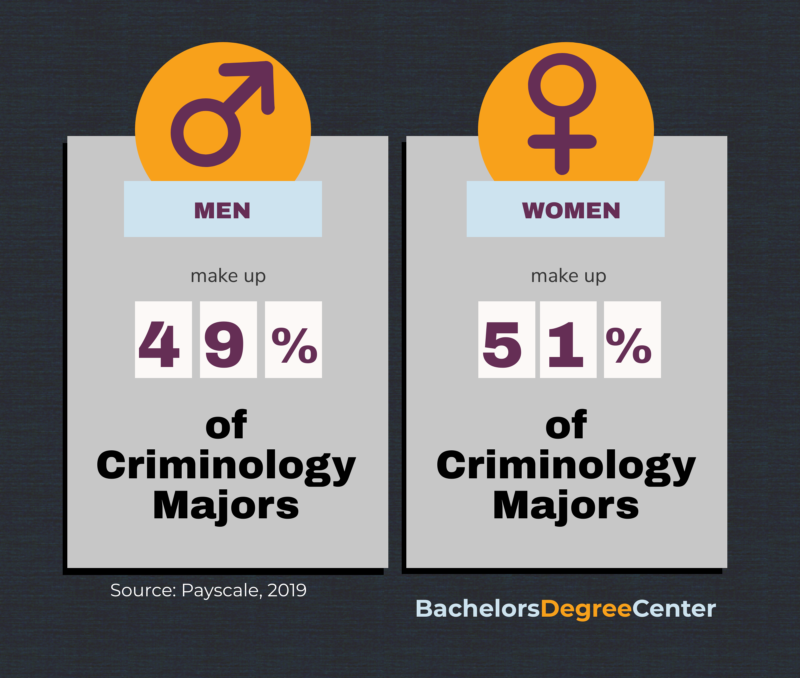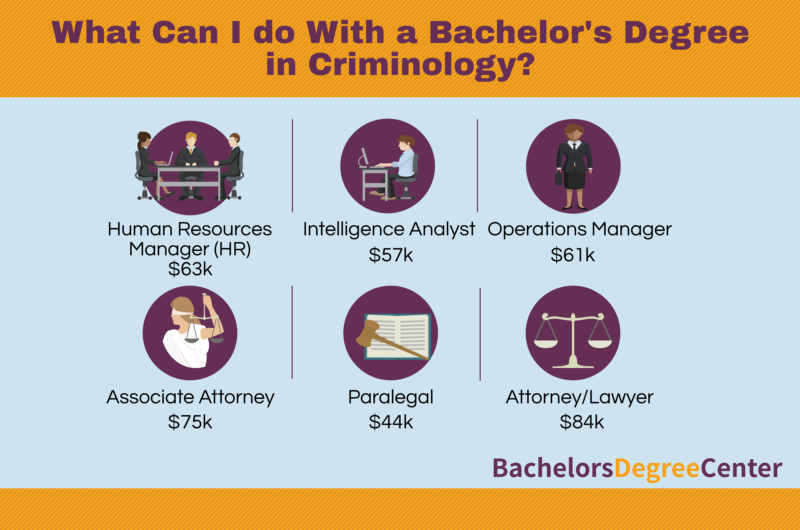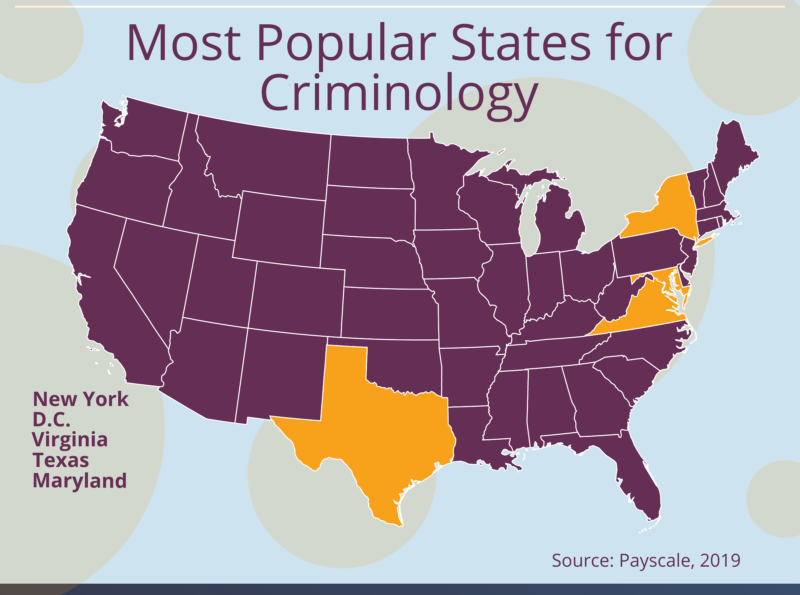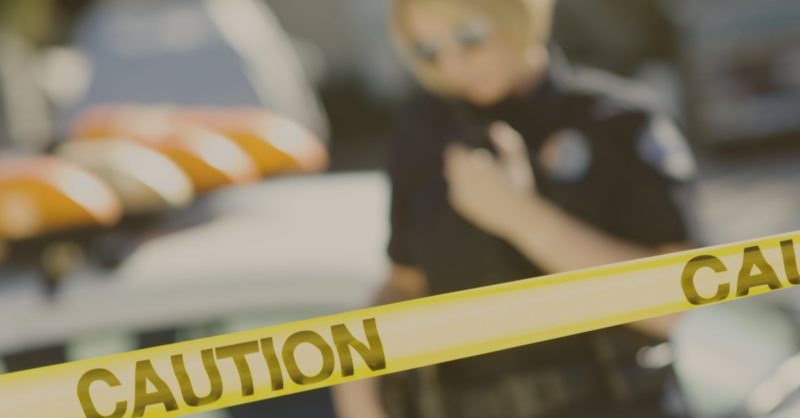The field of criminology has always been a fascinating industry in which to work. However, recent technological innovations and advances have opened many new facets into the world of criminology. If you have career objectives within the criminology or criminal justice in general, you have likely pondered these questions –
- How do I get a job in criminology?
- Is a criminology degree useful?
- What can you do with a criminology degree?
The United States’ criminal justice system is organized into large, broad divisions that include:
- The law enforcement division
- The court system
- The corrections system
If you have a profound interest in a career in one of these criminal justice divisions, the answer to the question – is a criminology degree useful? is an emphatical yes!

What is the Difference Between Criminal Justice and Criminology?
Many people remain confused as to the relationship between criminology and criminal law. The difference between criminology and criminal justice is distinct and explained below.
Criminology
Criminology delves in-depth into the many facets that combine to make up the anatomy of a crime. Criminology focuses on –
- The crime’s cause
- The crime’s consequences
- The crime’s costs
The difference between criminology and criminal justice is that criminal justice is a direct reference to the established federal, state, and local systems of justice. These systems include:
- Handling criminal matters
- Detecting crimes
- Apprehending and detaining criminals
- Criminal prosecution and the resulting penalty/ punishment
Within the criminology field, a criminologist may:
- Work a crime scene
- Interrogate witnesses or suspects
- Profile criminal cases
- Participate in the autopsy process
- Help to rehabilitate those convicted of crimes
- Become research experts
Criminologists are analysts. They are responsible for appropriately collecting and analyzing data in support of those who work in the criminal justice system. Their jobs entail gathering data according to accepted standards and then analyzing the information for those responsible for prosecuting the crime. A criminologist considers other factors that include –
- Economic Data
- Environmental Factors
- Psychological Perspectives
- Socioeconomic Variables
What is the Difference Between Criminal Justice and Criminology? Read on to learn the difference between criminology and criminal justice by understanding what criminal justice is about.
Criminal Justice
The difference between criminology and criminal justice is that the field of criminal justice is an integrated system that follows a set of rules and laws set forth by a society or culture. On the other hand, criminology is a criminal justice specialty that analyzes criminal behavior and relevant factors. Members of the criminal justice system include –
- Federal Bureau of Investigation (FBI) Agents
- Law Enforcement officers and detectives, etc.
- Members of the US Drug Enforcement Agency (DEA) or the US Marshall Service
- US Immigration & Customs Enforcement Agents (ICE)
When someone has been arrested, they then enter the court system. The primary purpose of the court system is to determine, through due process, the guilt/innocence of suspected criminals. The court system employs:
- Attorneys
- Bailiffs
- Clerks
- Judges
The reality is the difference between criminology and criminal justice is distinct enough that the two terms should NOT be freely used interchangeably. If you intend to pursue a degree in criminal justice/criminology, it is a good idea to know the answer to the question — What is the difference between criminal justice and criminology?
Accreditation from Criminology Schools and Programs
The process by which universities, colleges, and professional schools earn an industry-sanctioned validation – principally, a stamp of approval — is known as accreditation. The accreditation process is generally administered by a governmental agency (or a third-party neutral professional organization) that operates with industry approval.
The accreditation agency is tasked with the responsibility of assessing school/course content against a pre-established set of professional standards, to determine if the material evaluated meets the professional criteria. Accreditation is granted at several levels. These levels are discussed below.
Accreditation at the Regional Level
Regional accreditation is granted by the federal government’s Regional Agencies – a group of agencies within the United States Department of Education (USDE.) The USDE- approved agencies manage the country’s accreditation processes and standards. Because regional accreditation is granted by the federal government, it is generally considered the most exalted accreditation type.
Accreditation at the Specialized Level
Undergraduate and graduate criminal justice programs seek further accreditation offered by an industry that has chosen accreditation oversight agency. This process is strictly voluntary.
Criminal Justice Accreditation
The Academy of Criminal Justice Sciences (ACJS) is a professional criminal justice organization that works to support the criminal justice field in any way possible. The Academy of Criminal Justice Sciences, as an international organization, accomplishes this by offering –
- Accreditation of Criminology degree programs
- Performing Criminology Research
- Criminology Education
- Criminology Policy Analysis
- Networking
- Student Resources
It is noted that the Academy of Criminal Justice Sciences accreditation is a significant credential, so not many schools can meet the incredible rigid standards.

What is a Criminology Degree?
If you have begun to consider a career in criminology seriously, it is crucial for you to start a comprehensive analysis of the best criminology colleges and learn the answers of some questions you have begun to ask yourself –
Are there criminal justice schools near me? If so, how do I find the criminal justice schools near me?
Are there free accredited criminology courses available near me?
Or, where can I find:
- The best criminology colleges
- The best undergraduate criminology programs
- Online criminology degrees
If you are interested in an online bachelor degree in criminology, it is likely you have considered the answers to these questions regarding an online criminology degree:
Where can I find the best criminology colleges with online options?
What About Online Criminology Degrees?
The good news for people seeking a degree in criminology online is that colleges and universities have heard you. Most people looking for online criminology degrees are already working in the field, so they really benefit from the flexibility and convenience of an online criminology degree. Maybe you’re a police officer who wants to advance to detective or a forensic tech with an associate’s degree who wants a promotion. An online criminology degree can help you do that — as long as it’s accredited and reputable.
The options can be very affordable as well. The reality is, while there are free criminology courses online (and of quality content), they only offer the knowledge and not college credit unless you choose to pay for taking (and passing) the course. A simple Internet search will quickly reveal:
- Many online criminology degree programs available on-campus, online, or as a hybrid format
- Top criminal justice colleges nearby and in your regional area
- The best criminology colleges that meet your career goals
The best undergraduate criminology programs offer a wide variety of different online formats and approaches for different learning styles, and should be built on real-world knowledge and expertise.
Specialized Certifications in Criminology
Criminology certificate programs tend to require fewer credits earned that an associate degree or baccalaureate degree in criminology. While there are free online criminology courses with certificates, the most reputable certificates will have tuition fees. If you choose to attend a free online criminology program, make sure you’re only doing it for your own personal and professional development — not for transferable college credits.
Topics of criminology certificate courses include:
- Forensic science and investigation
- History of the criminal justice system
- Juvenile delinquency
- Private investigation
- Race and crime
- Research skills
- Social and psychological causes of crime
- Special victims and special populations
- Women and crime
A certificate in criminology focuses on the essential aspects of criminal investigation procedures, forensic science, as well as providing an introduction to the basic aspects of criminal justice as defined by US law. Many criminology certificate online programs can be attended as either a part-time or full-time student. On average, an online criminology certificate can be earned in about two semesters or approximately one school year.
Remember to check with your state to determine the exact criteria.
Working professionals in criminology can also benefit from getting a specialized certification from a criminology professional organization. Criminology certifications include:
The CLEA — The Certified Law Enforcement Analyst Certificate
The Certified Law Enforcement Analyst certification is offered by the International Association of Crime Analysts (IACA) to its professional members. Applicants for the Certified Law Enforcement Analyst Certificate credential must possess at least three years of professional experience in the fields of corrections, law enforcement or intelligence, and any other related industry.
The CFCS — Certified Financial Crime Investigation Certificate
The professional organization that is known as Certified Financial Crime Specialists offers the Certified Financial Crime Investigation certification. This specialty credential prepares students with the knowledge to work across the many financial crimes.
The CCJP — The Certified Criminal Justice Addiction Professional Certificate
The state prison population, on average, is filled with those convicted of drug offenses. The Certified Criminal Justice Addiction certificate is not available in every state; however, it is an extremely fast-growing field where the criminal justice system works alongside healthcare-addiction industry specialists. Many current CCJP belongs to a reciprocal arrangement of at least 27 states.
The CIAC — The Crime and Intelligence Analysis Certificate
The Crime and Intelligence Analysis Certificate (CIAC) prepares graduates with extremely specialized training that includes — how to statistically analyze crime trends and issues as a tool to create tactical strategies that mitigate criminal behavior.
When certificate candidates graduate, they receive the authorization to reference themselves as a Certified Crime and Intelligence Analyst.
The Crime and Intelligence Analysis Certificate requires candidates to complete 188-course hours studying eight approved criminal justice, related classes.
Jobs with a Criminology Degree
What jobs can you get with a criminology degree? Criminology degree jobs vary widely based upon the job type, location, and the education of criminology professionals. Most individuals interested in entry-level jobs with a criminology degree begin by asking themselves — Are there criminology jobs near me?
Are there criminology jobs near me? Absolutely; every town, city, county, and state has criminology jobs, and they are often understaffed. However, it is essential to note that many entry-level jobs for criminology majors are found in areas with a large population, or that have a high concentration of state and federal agency operations, like Washington, DC, for example.

The following list details entry-level criminology degree jobs:
Crime Scene Investigator
A professional crime scene investigator facilitates the work done by detectives and police officers during an investigation. A crime scene investigator is tasked with the responsibility of gathering (and analyzing) the data samples and evidence collected at a crime scene.
FBI Agent
Some view a job as an FBI (Federal Bureau of Investigation) Agent the pinnacle career position for criminal justice professionals. FBI Agents can work domestically or in a foreign country. They are tasked with the responsibility and challenge to:
- Investigate Cybercrime
- Investigate Federal Crimes
- Investigate Terroristic Threats
- Investigate Organized Crime
Additionally, FBI Agents must be 23 years old to apply for a position within the Federal Bureau of Investigation and have a documented history of relevant work history for the past 36 months. FBI Agent applicants must pass through intense interviews, personality profile testing, and a physical standard test.
Social Worker
Professional social workers are employed in many industries; the criminal justice industry is one of these industries. A Social Worker with a criminology background has professional skills that allow them to be valuable and helpful with:
- Assisting low-income families
- Providing food assistance and childcare programs to eligible recipients
- Administering drug abuse prevention programs
- Counseling minors currently in jail
Forensic Accountant
Criminology forensic accountants act in the capacity of a financial detective. A forensic accountant is responsible for –
Monitoring and Managing financial account records.
Developing timelines of relevant financial transactions.
Calculating the value and total of assets held, among many other accountancy techniques.
The information derived from these forensic audits help create evidentiary information that is used by attorneys in matters regarding –
- Bankruptcy
- Embezzlement
- Insurance Fraud
- White-Collar Crime
Corrections Manager
Corrections Managers are tasked with the responsibility of overseeing and supervising the corrections officers that are managing the prison population. A criminal justice professional who is employed as a Corrections Manager interacts with –
- Upper-level Prison Management
- Corrections Supervisors and Officers
- Support Staff members
- Prison Inmates
A Corrections Manager is generally considered a mid-management position responsible for the security of the facility, the administration duties, and the safety of workers and inmates.
Emergency Management Coordinator (EMC)
Those who hold professional positions of Emergency Management Coordinators work for the local, the state, or the federal government. Emergency Management Coordinators have responsibilities that include:
- Planning for Natural Disasters
- Preparing for Natural Disasters
- Developing and Implementing Emergency Response Plans
- Leading the Response to a Natural Disaster
However, many Emergency Management Coordinators find employment in non-profit organizations, nursing facilities, and hospitals. An Emergency Management Coordinator is generally viewed as a mid- to senior-level criminal justice position.
Paralegal
Paralegals are the fundamental support staff for attorneys and the legal system in general. Paralegals work under the supervision of the licensed attorney and facilitate the legal process by:
- Drafting Documents
- Researching Case Law
- Organizing complex legal files
- Conducting Legal Research
A Private Investigator
Those who choose to become a Private Investigator (PI) with a criminal justice bachelor’s degree work varying types of cases for both defendants and plaintiffs in lawsuits. A Private Investigator is capable of:
- Conducting an informal background profile
- Searching for missing people
- Researching public records for long-lost relatives and friends
- Evaluating financial matters of people or companies
- Confirm personal data disclosed by a person for the company
How to Get a Job in Criminology
There are many types of criminology jobs, but almost all jobs to do with a criminology degree have the same basic qualifications. First and foremost, you will need a degree or certificate in criminology, earned from an accredited, reputable institution.
That’s really only the start, though. If you’re wondering how to get a job in criminology, the answer isn’t as simple as walking in and asking to speak to HR. The criminal justice system is highly professional and rather closed; it’s a high security, high responsibility career, after all.
Much of what you need to get a job with a criminology degree you will do alongside your degree:
- Take criminology internships to gain experience and make connections
- Develop relationships with your cohort
- Get an added certification in some in-demand criminology specialization
Of these, making connections is crucial. The classmate you study with might get a job before you and bring you along; the agency you intern with may make a position for you. You need to know how to get a job in criminology, and your professors might not be able to tell you.
Criminology students will need strong communication skills, critical thinking, and problem-solving skills in addition to their knowledge if they want to make the most of their job opportunities. Expertise in many areas is useful:
- mental health
- public safety
- criminal activity
- social work
- social science
- public policy
- political science
- homeland security
Career options for criminology graduates, such as criminal profiler, forensic psychologist, or parole officer, require a real multi-faceted knowledge. Career paths in government agencies and private sector can be demanding.

Criminology Jobs Salary
One of the most important when selecting the direction of your criminology career is — How much can I make in criminology? Fully understanding if a criminology jobs salary will meet a student’s future needs is a critical component of a career analysis. So before making final decisions, understand just how much a criminology major salary brings.
Careers in criminology salary and criminology salary per hour varies and is contingent upon the specific criminology job, the location, and the professional’s experience. For instance, criminology professionals working in managerial positions will make much more than technicians, while correctional treatment specialists will make a different salary than crime scene investigators due to demand and expertise.
Careers in Criminology: Salary Expectations
Detectives
The criminal justice salary per hour for Police Officers & Police Detectives is $30.47/hour, which translates to $63,380/year. In 2018, there were more than 800,000 Police Officers & Police Detectives earning a median annual criminal justice salary that exceeds $63,000. Detectives make more than police officers, of course.
Forensic Science Technicians
The criminal justice salary per hour for Forensic Science Technicians is $27.99/hour, which translates to $58,230/year. In 2018, there were more than 16,000 Forensic Science Technicians earning a median annual criminal justice salary that exceeds $58,000.
Probation Officers and Correctional Treatment Specialists
The criminal justice salary per hour for Probation Officers & Correctional Treatment Specialists is $25.49/hour, which translates to $53,020/year. In 2018, there were more than 91,000 Probation Officers & Correctional Treatment Specialists earning a median annual criminal justice salary that exceeds $53,000.
Private Detectives & Investigators
The criminal justice salary per hour for Private Detectives & Investigators is $24.08/hour, which translates to $50,090/year. In 2018, there were more than 33,000 Probation Officers & Correctional Treatment Specialists earning a median annual criminal justice jobs salary that exceeds $50,000.
Paralegals & Legal Assistants
The criminal justice salary per hour for Paralegals & Legal Assistants is $24.49/hour, which translates to $50,940/year. In 2018, there were more than 33,000 Probation Officers & Correctional Treatment Specialists earning a median annual criminal justice jobs salary that exceeds $50,000.
Social Workers
The criminal justice salary per hour for Social Workers is $23.79 hour, which translates to $49,470/year. In 2018, there were more than 700,000 Social Workers earning a median annual criminal justice jobs salary that exceeds $49,000.
Criminology Professional Organizations
Like other industries, criminal justice and criminology has professional organizations that bring people in the field together for mutual benefit. Most industries support and depend upon an industry-approved professional organization that offers its members benefits that include:
- Educational resources
- Job boards
- Mentoring by industry experts
- Networking events
Because of the many and varied criminal justice jobs and industries, there are many professional criminology organizations to serve each slice of the far-reaching criminal justice industry. One of the more well-known criminology professional organizations is the Academy of Criminal Justice Sciences.
The Academy of Criminal Justice Sciences (ACJS)
The Academy of Criminal Justices Sciences was established in the early 1960s. The ACJS focuses on the following criminal justice issues:
- Accreditation services
- Education
- Policy Analysis
- Research
Other professional criminology organizations include:
- ASCLD — The American Society of Crime Laboratory Directors
- NCJA — The National Criminal Justice Association
- ASC — The American Society of Criminology
- NAFI — The National Association of Fire Investigators
- AJA — The American Jail Association
- ACA — The American Correctional Association
- ASCLD — The American Society of Crime Laboratory Directors
- IACA — The International Association of Crime Analysts
- NAFC — The National Association of Forensic Counselors
- IAFC — The International Association of Forensic Criminologists
- NACOP — The National Association of Chiefs of Police
- HTCIA — The High Technology Crime Investigation Association (HTCIA)Related Rankings:
25 Best Criminal Justice Bachelor’s Degrees
15 Best Online Criminal Justice Degrees
